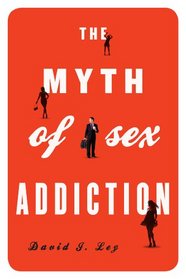Search -
The Myth of Sex Addiction
The Myth of Sex Addiction
Author:
.cs95E872D0{text-align:left;text-indent:0pt;margin:0pt 0pt 0pt 0pt} .cs5EFED22F{color:#000000;background-color:transparent;font-family:Times New Roman; font-size:12pt; font-weight:normal; font-style:normal; } .csA62DFD6A{color:#000000;background-color:transparent;font-family:Times New Roman; font-size:12pt; font-weight:normal; font-style:i... more »
Author:
.cs95E872D0{text-align:left;text-indent:0pt;margin:0pt 0pt 0pt 0pt} .cs5EFED22F{color:#000000;background-color:transparent;font-family:Times New Roman; font-size:12pt; font-weight:normal; font-style:normal; } .csA62DFD6A{color:#000000;background-color:transparent;font-family:Times New Roman; font-size:12pt; font-weight:normal; font-style:i... more »
ISBN-13: 9781442213043
ISBN-10: 1442213043
Publication Date: 3/1/2012
Pages: 256
Rating: ?
ISBN-10: 1442213043
Publication Date: 3/1/2012
Pages: 256
Rating: ?
0 stars, based on 0 rating
Publisher: Rowman & Littlefield Publishers
Book Type: Hardcover
Other Versions: Paperback
Members Wishing: 0
Reviews: Amazon | Write a Review
Book Type: Hardcover
Other Versions: Paperback
Members Wishing: 0
Reviews: Amazon | Write a Review
Genres:
- Health, Fitness & Dieting >> Addiction & Recovery >> Sexual
- Health, Fitness & Dieting >> Addiction & Recovery >> Substance Abuse
- Health, Fitness & Dieting >> Relationships >> Interpersonal Relations
- Health, Fitness & Dieting >> Relationships >> Love & Romance
- Health, Fitness & Dieting >> Psychology & Counseling




